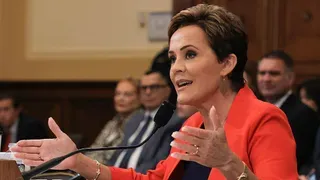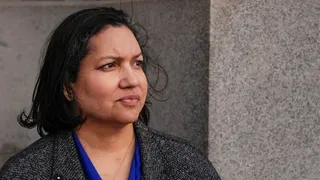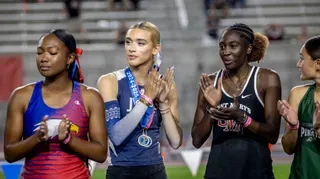December 30, 2011
Gay and Lesbian Activists Alliance Sets Agenda
Kevin Mark Kline READ TIME: 2 MIN.
The Gay and Lesbian Activists Alliance of Washington, D.C. (GLAA), a nonpartisan political organization for the LGBT community and the oldest continuously operating one of its kind in the country, released its ''Agenda: 2012'' guide to local LGBT issues, along with the group's candidate questionnaire, Dec. 19.
The guide is a policy brief that serves as a summary of the major actions the organization has deemed necessary to improve the lives of LGBT residents in the District. The guide is divided into six subject areas: marriage and family, public health, public safety and the judiciary, human rights, youth and seniors, and consumers and business. The items outlined in the guide are the result of feedback from a number of LGBT activists and organizations, according to Richard J. Rosendall, GLAA's vice president for political affairs.
''It is a tribute to the strength of coalition efforts in the District that 'Agenda: 2012' reflects input from so many allies, including The DC Center for the LGBT Community, DC Trans Coalition (DCTC), Gays and Lesbians Opposing Violence (GLOV), Rainbow Response Coalition and Services and Advocacy for GLBT Elders (SAGE),'' GLAA President Mitch Wood said in a prepared statement. ''The resulting policy brief is the most comprehensive single document advancing LGBT issues in D.C.''
Specific agenda items include defending civil-marriage equality, maintaining the domestic partnership law, improving collection of data in both the health care and crime statistics as they relate to sexual orientation and gender identity; providing LGBT-inclusive culturally competent training to law enforcement officers, government employees, employers and social service providers; and measures aimed at combating the spread of HIV/AIDS and other sexually transmitted diseases.
Newer items addressed in the brief include removing the prohibition of surrogacy agreements in the District, defending the District's needle-exchange program and medical marijuana law, opposing the implementation of prostitution-free zones, allowing for the issuance of new birth certificates for people undergoing gender transition, and expanding anti-bullying efforts in D.C. public and charter schools to protect sexual-minority youth.
''People always say, 'Now that you have marriage equality done, what's left?''' says Rosendall. ''This policy brief is the answer to that.''
Rosendall says the guide acts like an ''open-book test'' for those individuals running for political office, in that they can read about the issues affecting the LGBT community and then develop comprehensive plans to address those issues.
On Jan. 7, 2012, GLAA will mail its questionnaire and policy brief to every candidate registered in the April 3 primary election. Candidates are expected to respond to the questionnaire by Feb. 15, after which GLAA assigns ratings to each candidate on a scale of -10 to +10 based on their questionnaire responses and records on LGBT-related issues.
For potential candidates, Rosendall stresses the importance of actively implementing solutions to LGBT issues as a determining factor in candidate's ratings.
''Just having good policies isn't enough,'' he says. ''We don't give people immunity on anything, and we don't put our fingers on the scale. We're fair.''






